The Seasonal Migrant Pump
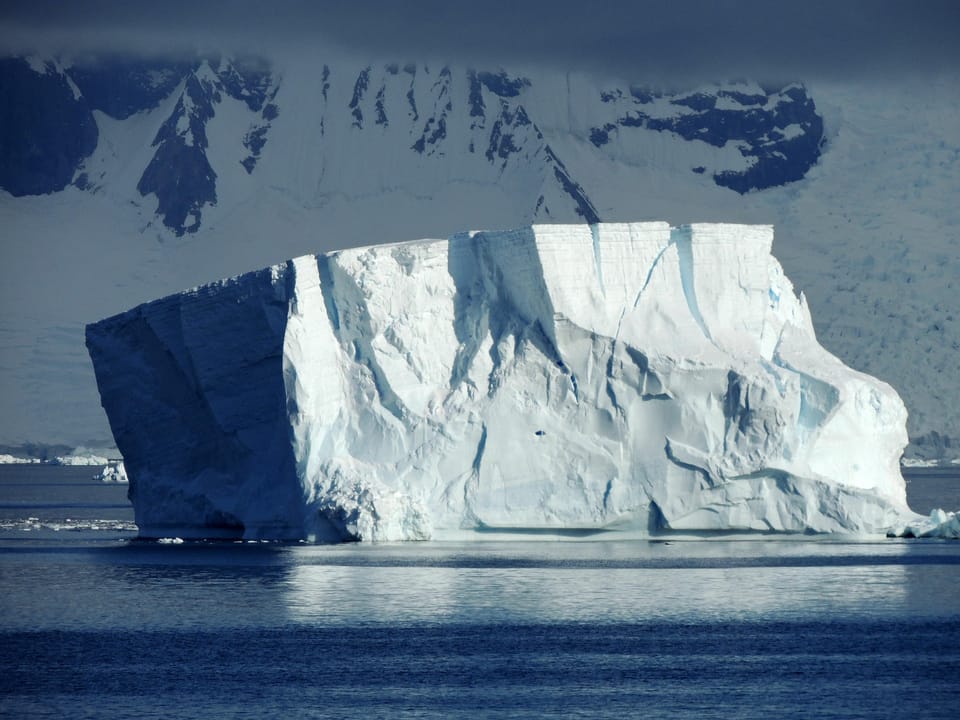
While two of the planet's most numerous organisms live out of sight and out of mind, we overlook them at our own peril.
Under the dark, choppy waters of the world's oceans, there's a hidden web of life dominated by copepods and krill. Copepods are scarcely larger than a dot on this page, and krill are mostly less than an inch long, but these tiny crustaceans play enormously important roles in the ecological vitality of the entire planet.
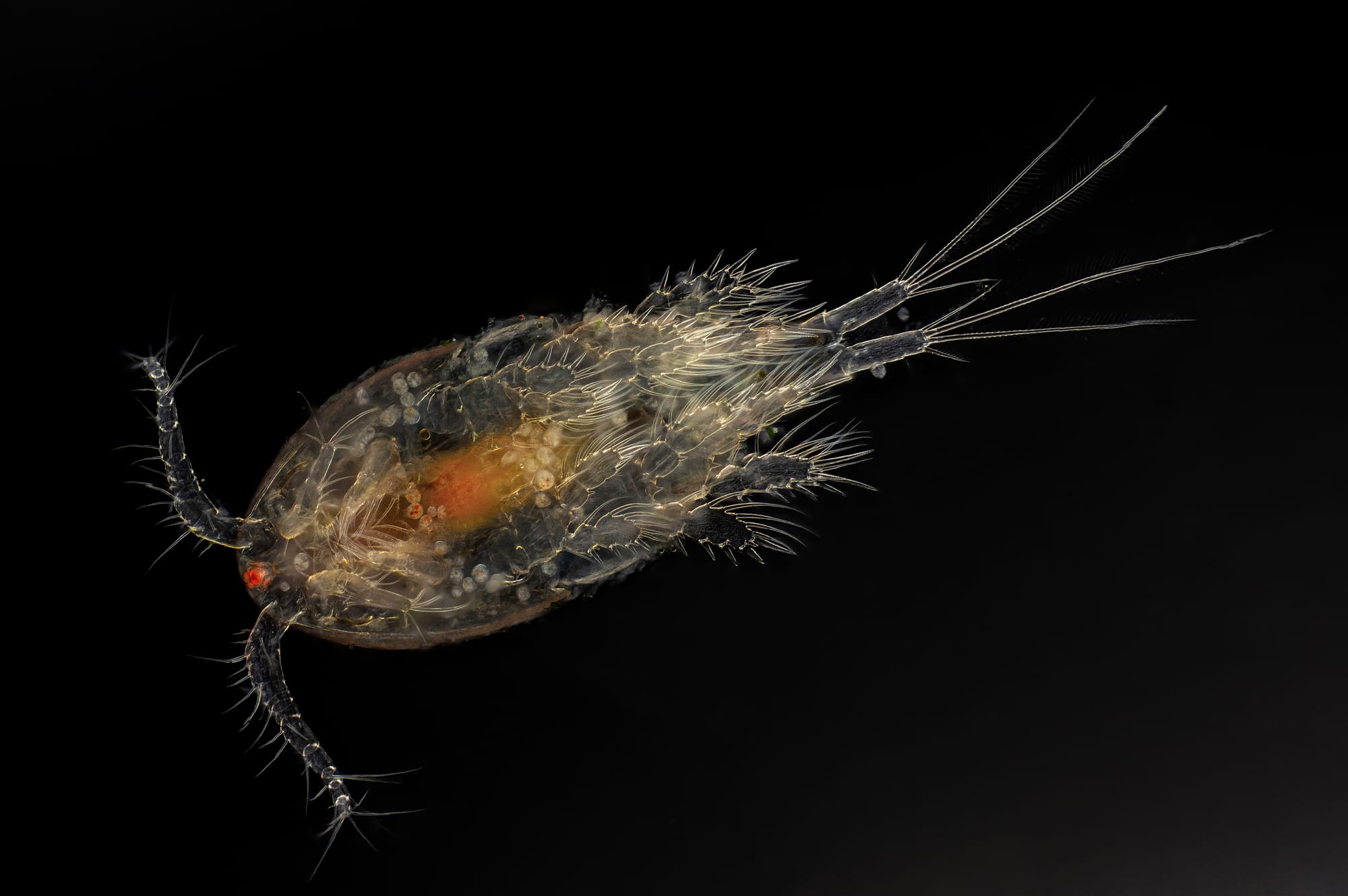
You may not know this, but krill have the largest biomass of any organism on Earth, with estimates of their total weight ranging from 300 to 550 million tonnes, and copepods are not far behind with an estimated 150 million tonnes. Given their minuscule size, this translates into an unimaginable number of individuals (there are 7000 trillion krill living in the waters around Antarctica alone!).
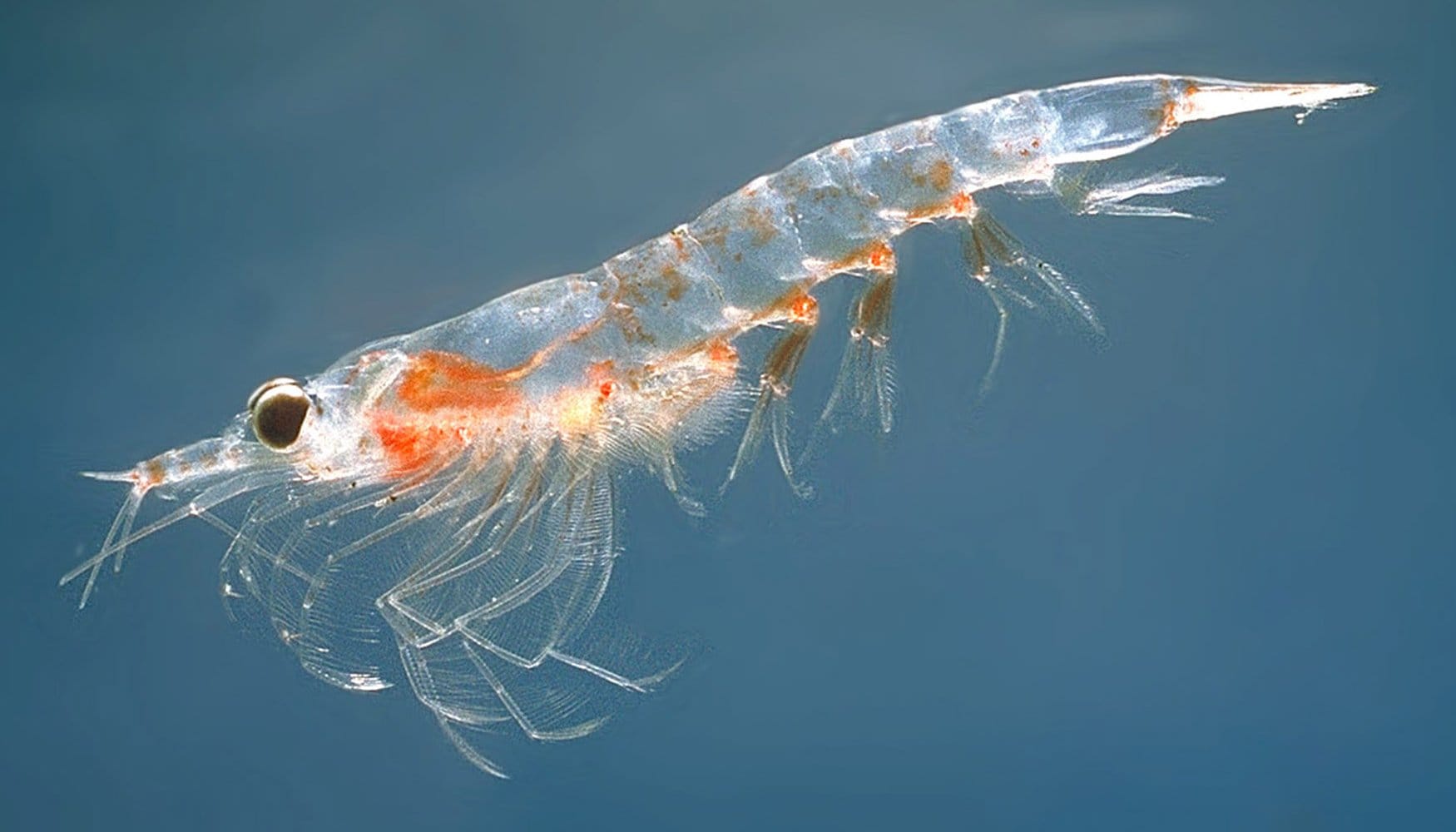
While it has long been known that these tiny crustaceans play a major role by eating microscopic bacteria and plankton and being eaten in turn by fish, birds, seals, and whales, new research is showing that they play an equally important role by capturing atmospheric carbon and transporting it into the deep ocean.
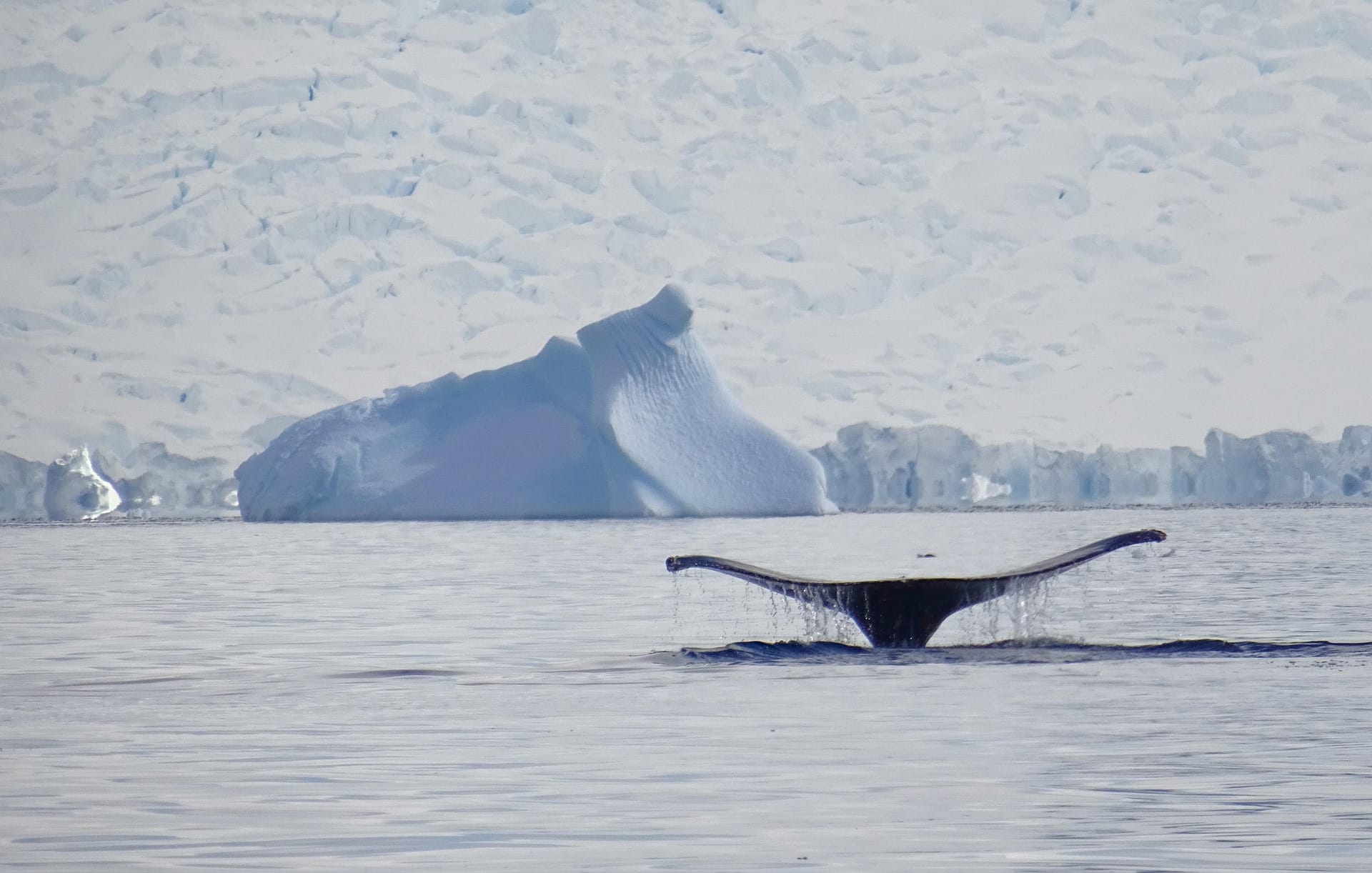
Scientists have long assumed that these super-abundant crustaceans capture carbon from the atmosphere and send it into the ocean's depths as they poop, die, and molt their exoskeletons. However, new research reveals that this material may play a limited role because much of this detritus breaks into particles and dissipates into the water before it sinks into the deep ocean (which is an immensely important storehouse of global carbon).
While copepods and krill spend the summer near the ocean's surface eating plankton that are photosynthesizing in the sunlight, it has been found that they migrate into deep water for the winter because there's little food available at the surface. And, when they migrate down, copepods and krill end up delivering carbon directly into the deep ocean, creating what is called the "seasonal migrant pump."
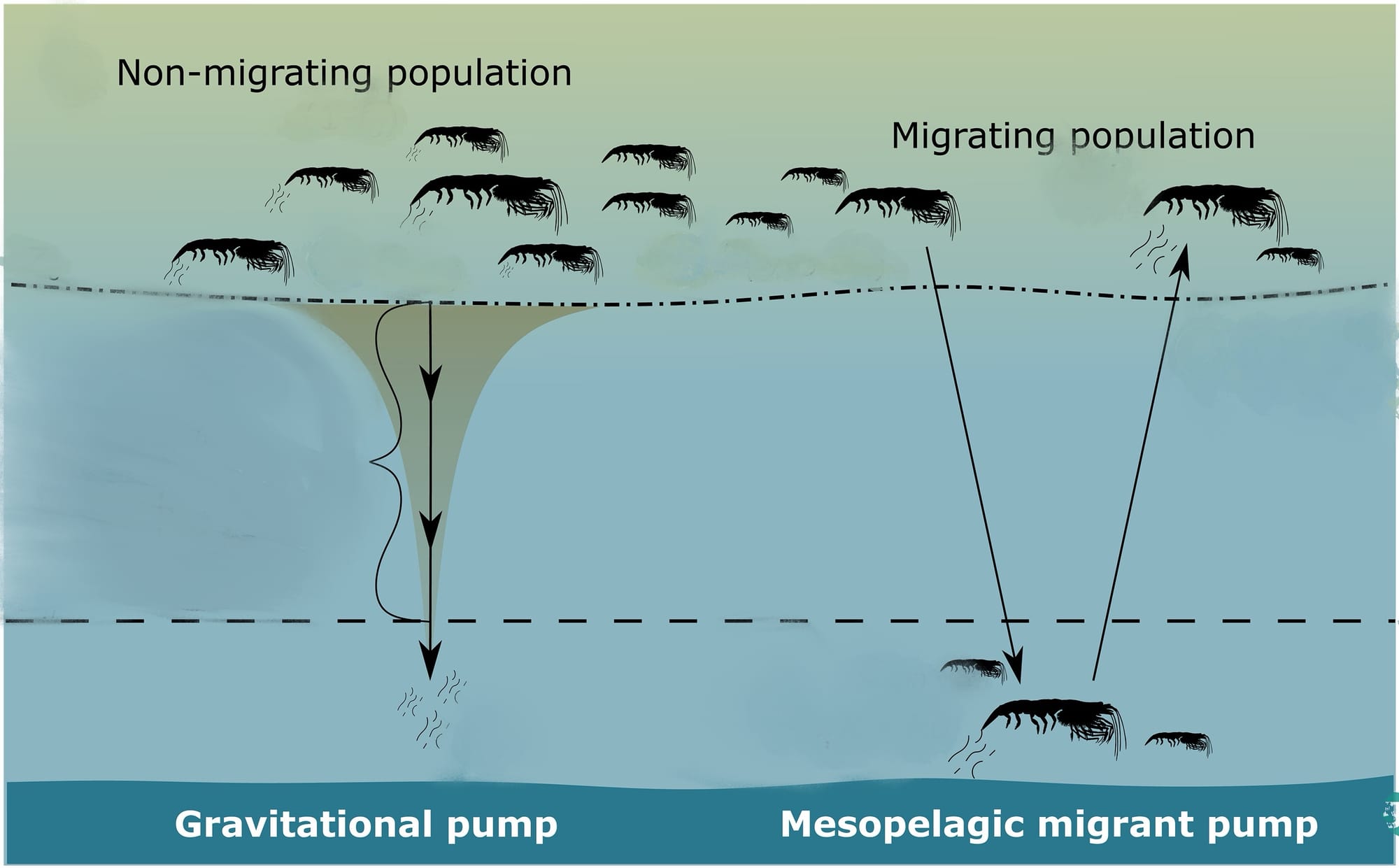
Imagine that the up-and-down migrations of copepods and krill are like heartbeats or breaths as the ocean regulates the planet's carbon cycles. And why does this matter? It matters because removing carbon from the atmosphere is what keeps the Earth from overheating!
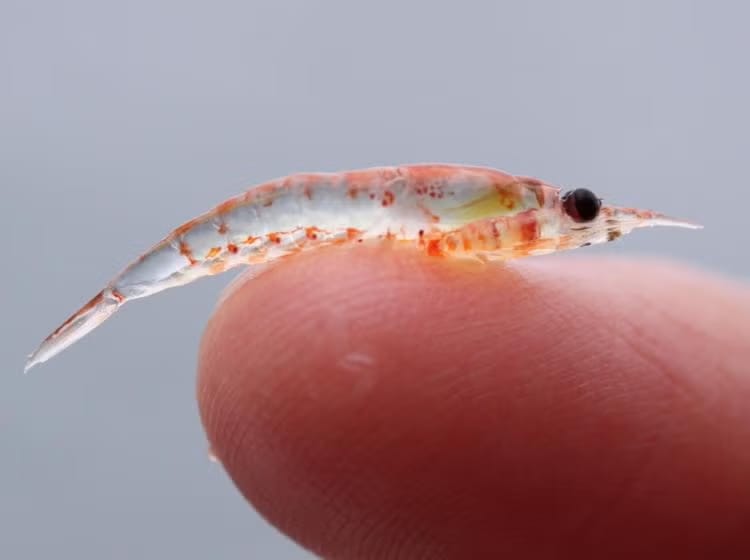
License to Krill
One sobering aspect of this story is that the global krill industry is exploding in size and scope. Massive trawlers now prowl some of the world's oceans harvesting hundreds of thousands of tonnes of krill. Dried, powdered krill and krill oil are used to feed farmed salmon (the world's fastest-growing food sector), and are added to pet foods and health supplements. This is deeply troubling because many animals rely on krill, and scientists are starting to notice starving whales and other critters being impacted by the loss of krill.

Other Resources:
This piece touches on the story of krill fishing.
The phrase "license to krill" comes from this informative article.
And here's a taste of the most recent scientific literature on the seasonal migrant pump.

Member discussion